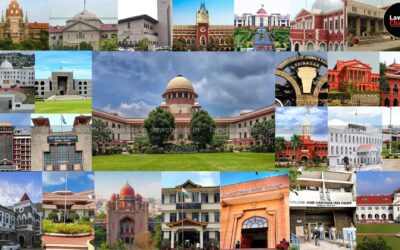Indian Courts Cannot Unilaterally Recognize Foreign Notarial Acts Without Compliance With Section 14 Of Notaries Act: Kerala HC

The Kerala High Court observed that unless the foreign country where a power of attorney was executed before a notary public is a reciprocating country by way of recognition under Section 14 of the Notaries Act, the notarial act done in the foreign country lacks sanctity. Thus, an Indian Court cannot unilaterally recognize a notarial act done by a foreign notary.
In the present case, the plaint in the original suit was filed by the Power of Attorney Holder, which was executed in USA.
The Bench of Justice K.Babu observed, “Therefore, the mandate of Section 14 of the Notaries Act is that unless the foreign country where a power of attorney is executed before a notary public is a reciprocating country by way of recognition under Section 14 of the Notaries Act, the notarial act done in the foreign country lacks sanctity. In the absence of such recognition and notification as provided in Section 14 of the Notaries Act, an Indian Court cannot unilaterally recognise a notarial act done by a foreign notary.”
Advocate I.V.L. Shenoy represented the Petitioner, Advocate M. Baiju Noel represented the Respondent.
Case Brief
A suit was filed by the Respondent to execute a release deed in respect of certain property in favour of the plaintiff in terms of the family arrangement, partitioning the another schedule property and to declare a gift deed as void.
However, the plaint was filed by the Power of Attorney Holder, which was apparently executed and authenticated in the State of Missouri, USA
Later, an application was filed by the Petitioner under Order VI Rule 16 and Order VII Rule 11 read with Section 151 of the Code of Civil Procedure, seeking to strike out the pleadings and reject the plaint in the original suit. However, the same was rejected by the trial court.
It was submitted that a presumption can be drawn under Section 85 of the Evidence Act that a power of attorney has been executed before and authenticated by a Notary Public was so executed and authenticated without reference to the provisions in Section 14 of the Notaries Act.
However, the Counsel for the Petitioner contended that for an Indian Court to recognise a notarial act done by a notary public in a foreign country, it is imperative for the Central Government to issue a notification under Section 14 of the Notaries Act declaring that the notarial acts lawfully done by notaries in that country shall be recognised within India.
Court’s Analysis
The High Court noted that the Notaries Act, 1952 was enacted to empower the Central and State Governments to appoint notaries, not only for the limited purposes of the Negotiable Instruments Act, but generally for all recognised notarial purposes, and to regulate the profession of such notaries.
The Court referred to Section 14 of the Notaries Act which deals with reciprocal arrangements for recognition of notarial acts done by foreign notaries., Section 85 of the Evidence Act which provides for presumption as to power-of-attorney and Section 57(6) of the Evidence Act that mandates that the Court must take judicial notice of all seals of Notaries Public.
With reference to the mandate under Section 14 of the Notaries Act, the Court said, “Therefore, the mandate of Section 14 of the Notaries Act is that unless the foreign country where a power of attorney is executed before a notary public is a reciprocating country by way of recognition under Section 14 of the Notaries Act, the notarial act done in the foreign country lacks sanctity.”
Further, with regard to presumption regarding identification and authentication as provided in Section 85 of the Evidence Act, the Court opined that the mandate of Section 57(6) of the Indian Evidence Act that the Court shall take judicial notice of the seals of notaries public can be made applicable to a power of attorney executed before a notary public in a foreign country only if the foreign country is a reciprocating country.
“The resultant conclusion is that the learned Trial Judge ought to have insisted for proof of reciprocation by the State of Missouri to draw the presumption under Section 85 of the Evidence Act with regard to the power of attorney produced before the Court”, the Court observed.
The Court granted liberty to the Respondent to place on record a duly executed power of attorney and proceed with the original suit.
Accordingly, the Original Petition (Civil) stands disposed of.
Cause Title: Margret @Thankam V. Joseph Mathew Chettupuzha (Neutral Citation: 2025: Ker: 56880)
Appearance:
Petitioner: Advocates Ivlshenoy, Anoop V.Nair, Tanoosha Paul, Rohith C., Avanthika R.
Respondent: Advocates M.Baijah Noel, Tslikhetha, Jithin TP

